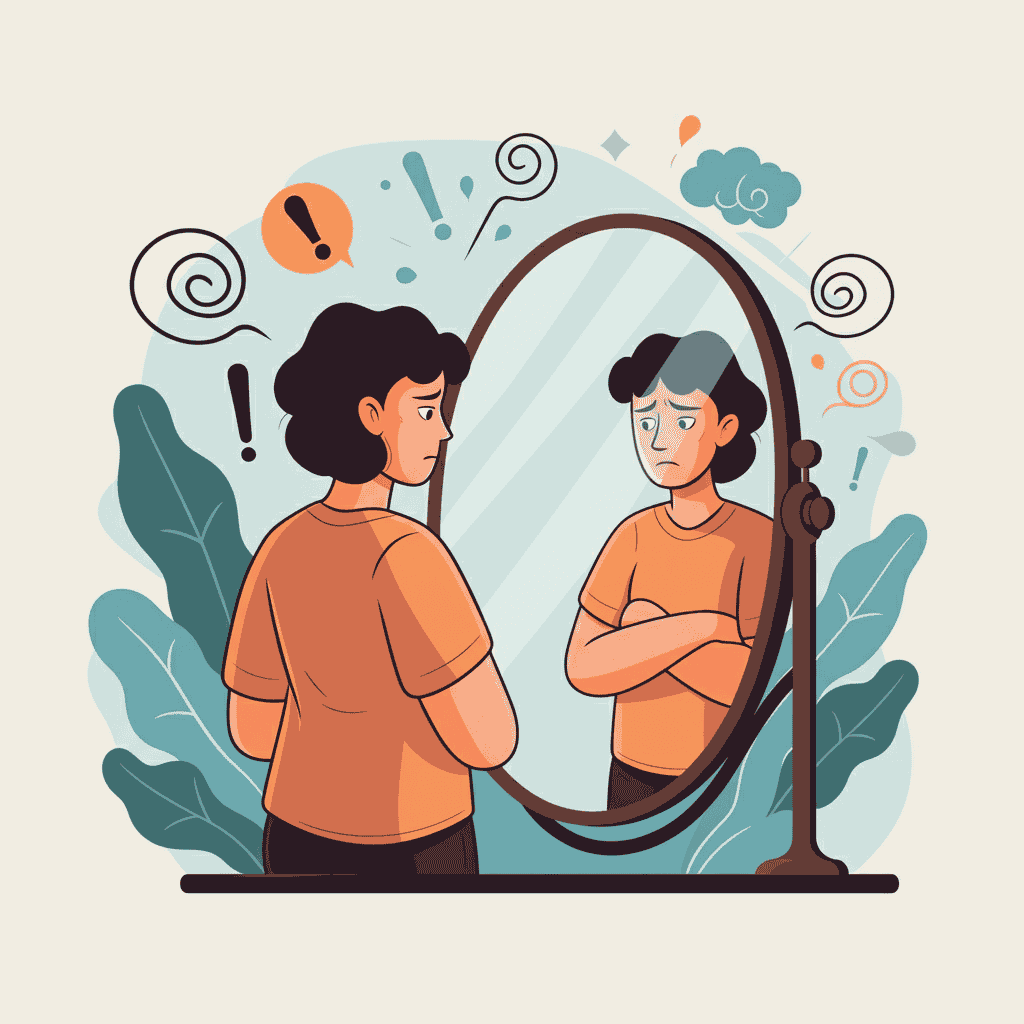How many times a day do you check your reflection? For most, it’s a frequent, almost subconscious act. We glance in the bathroom mirror, catch a glimpse in a shop window, or check our appearance in a car’s side mirror. These reflective surfaces do more than just show us what we look like; they are powerful tools that shape our self-perception. Mirrors can be a source of validation or a trigger for criticism, profoundly affecting our confidence and self-esteem.
This post explores the deep psychological, emotional, and behavioral impact of mirrors. We will uncover how your reflection can either build you up or tear you down, and how you can learn to use it as a tool for personal growth. By understanding this relationship, you can transform a simple daily habit into a powerful practice for building unshakable self-assurance.
Understanding Mirrors and Self-Perception
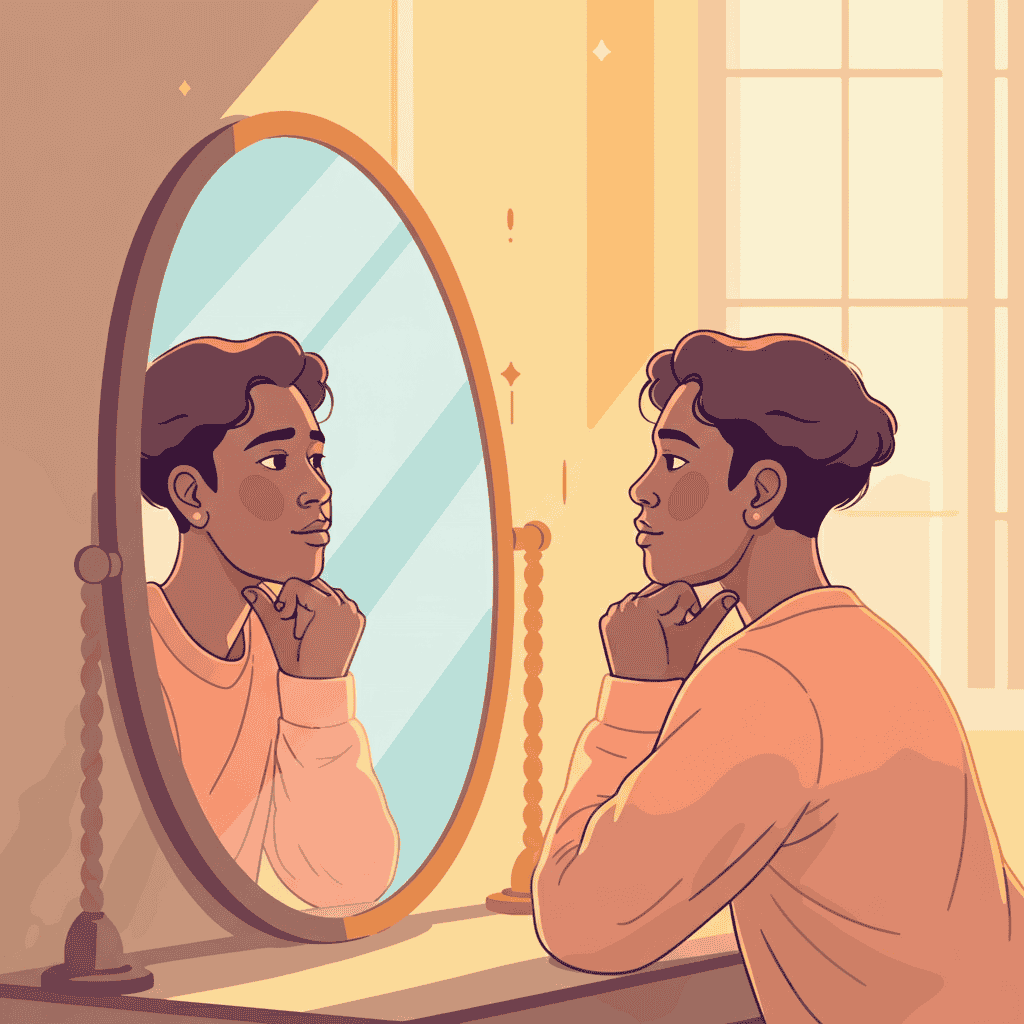
Our interaction with mirrors is rooted in deep-seated psychological processes. From a young age, mirrors help us develop a sense of self. This relationship evolves as we grow, influencing how we see and evaluate ourselves daily.
The Psychology of Reflection
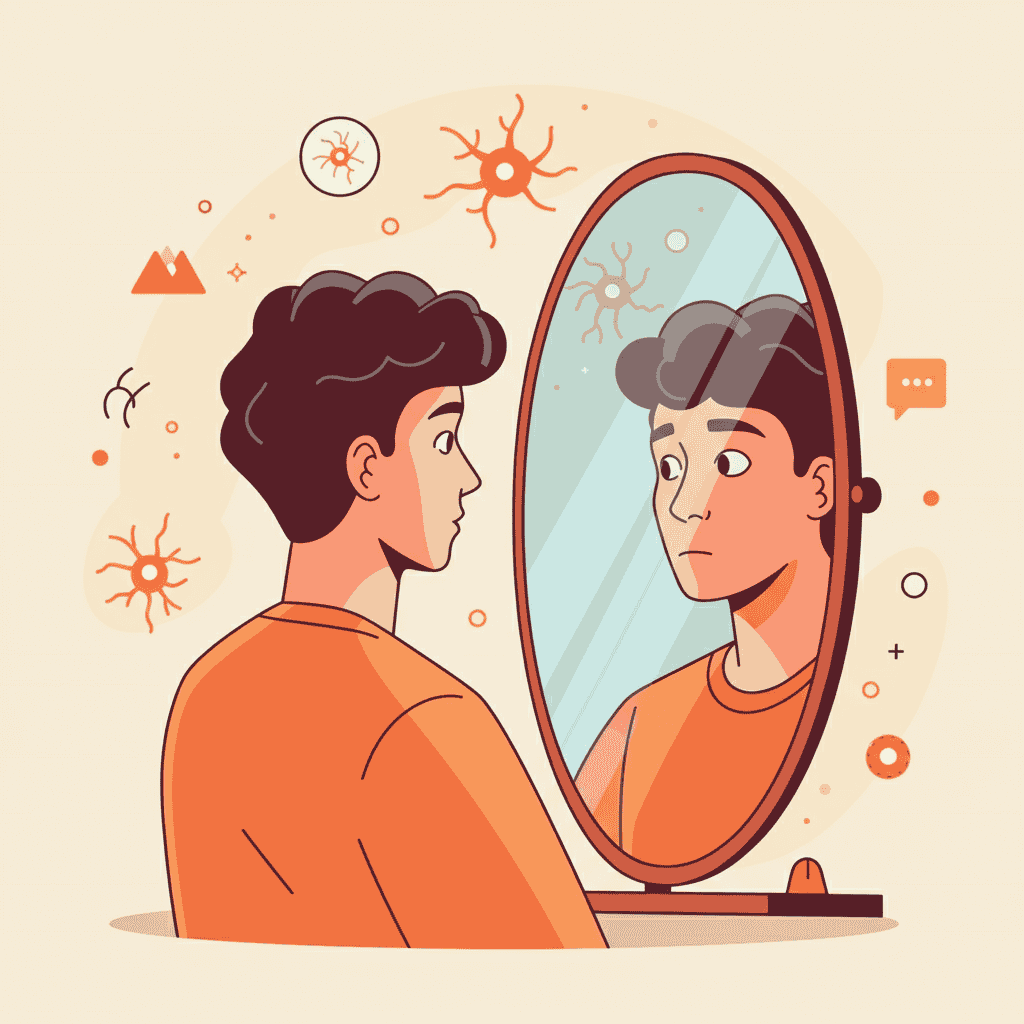
Humans are visual creatures, and we naturally rely on what we see to make judgments about the world and ourselves. When you look in a mirror, you are not just seeing a physical image; you are engaging in an act of self-evaluation. This process is linked to the concept of self-recognition, a cognitive milestone where we understand that the reflection is, in fact, “me.”
This ability is supported by specialized brain cells known as mirror neurons. These neurons fire both when we act and when we observe someone else performing that same action. While their primary role is in understanding and imitating others, they also play a part in how we process our own reflection, connecting what we see with our internal sense of self. This neurological connection makes looking in a mirror an inherently introspective experience.
Mirror Exposure and Self-Awareness
The frequency of our mirror exposure can significantly alter our psychological state. Interacting with our reflection heightens our self-focus, making us more aware of our thoughts, feelings, and appearance. This can be a double-edged sword.
For some, frequent mirror exposure can lead to a state of objective self-awareness, where they see themselves as an object to be observed and judged. This can amplify insecurities and lead to a more critical inner voice. Conversely, infrequent exposure might lead to a disconnect from one’s physical self. Finding a healthy balance is key to using mirrors constructively rather than destructively.
Mirrors as Tools for Building Confidence
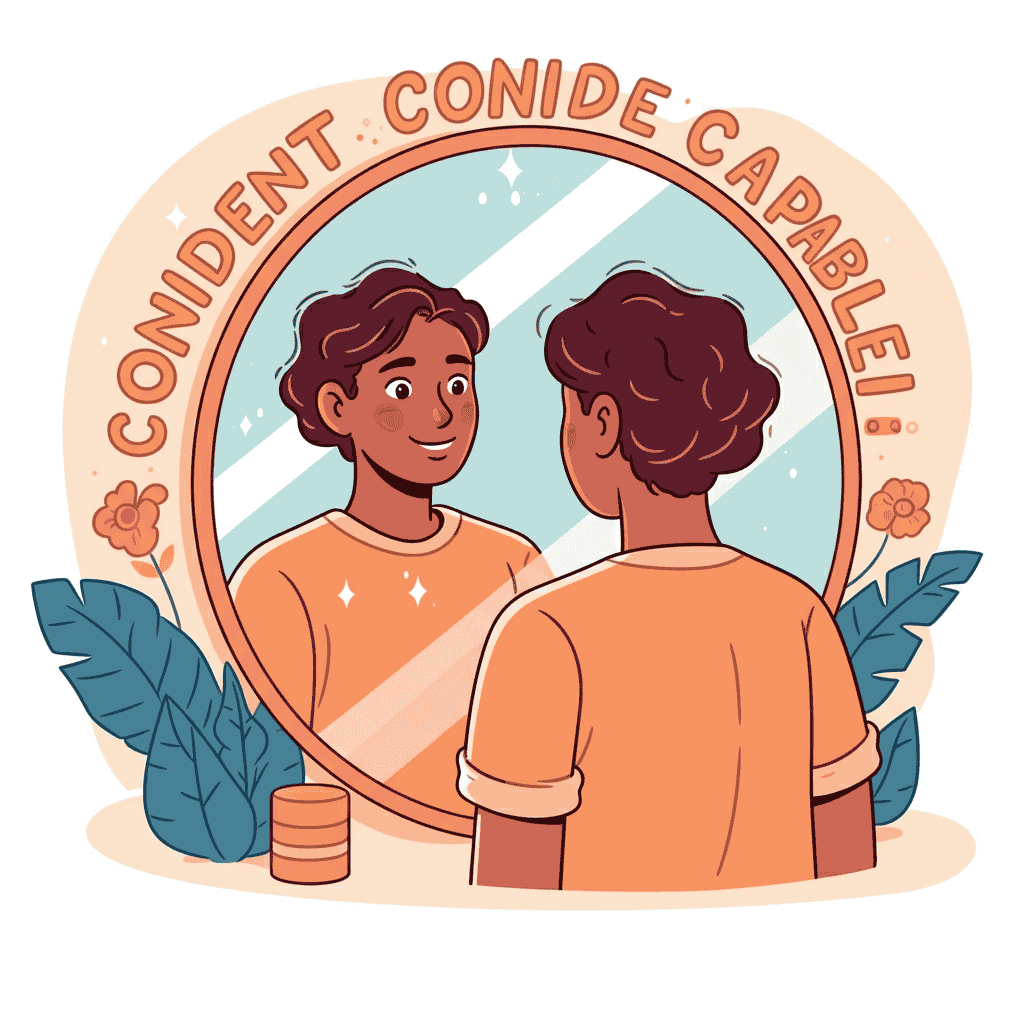
When used with intention, mirrors can become powerful allies in your journey toward greater self-confidence. They provide instant visual feedback that can be harnessed to reinforce positive changes in mindset and behavior.
Positive Self-Affirmation
One of the most effective ways to build self-esteem is through positive self-talk, and mirrors can amplify this practice. “Mirror affirmations” involve standing in front of a mirror and speaking positive statements to yourself. Looking yourself in the eye as you say, “I am capable,” or “I am worthy of respect,” creates a powerful connection between the words you speak and the person you see. This technique helps rewire your brain to challenge negative self-perceptions and internalize a more compassionate and empowering narrative.
Body Language and Posture Feedback
Confidence is not just a feeling; it’s something you project through your body. Slumped shoulders, a downward gaze, and fidgeting can signal a lack of self-assurance. A mirror is an honest coach for your nonverbal communication. Use it to observe your posture. Are you standing tall with your shoulders back? Is your head held high? Practicing confident poses, like the “power pose” (standing with hands on hips), for just a few minutes in front of a mirror can actually increase feelings of confidence and reduce stress.
Practicing Skills and Social Interactions
The mirror is also an excellent rehearsal stage. Before a big presentation, job interview, or even a difficult conversation, practicing in front of a mirror can be incredibly beneficial. It allows you to watch your facial expressions, hand gestures, and overall demeanor. You can see if you appear open and engaging or closed off and nervous. This visual practice helps you refine your delivery, reduce anxiety, and walk into any situation feeling more prepared and self-assured.
The Dark Side: Mirrors and Negative Self-Perception

While mirrors can build us up, they can also become a source of significant distress. For many, the reflection is not a friend but a harsh critic, highlighting every perceived flaw and fueling a cycle of negativity.
Body Image Issues and Comparison Culture
Excessive mirror-checking, often called “body checking,” is a common behavior for those struggling with body image issues. Instead of a quick glance, it becomes a prolonged and forensic examination of specific body parts. This habit often leads to increased dissatisfaction and anxiety.
This behavior is intensified by pervasive societal beauty standards and the comparison culture fueled by social media. When our own reflection doesn’t match the curated, filtered, and often unrealistic images we see online, it can trigger feelings of inadequacy. The mirror becomes a tool for measuring how far we fall short of an impossible ideal.
The Psychological Effects of Negative Gazing
For individuals prone to anxiety or low self-esteem, the mirror can become a catalyst for negative thought spirals. A simple glance can confirm their deepest insecurities, leading to increased self-consciousness in social situations.
In more severe cases, obsessive mirror gazing is a hallmark of Body Dysmorphic Disorder (BDD), a mental health condition where an individual has a debilitating preoccupation with perceived flaws in their appearance. For someone with BDD, the mirror is both a source of distress and a compulsive tool they feel unable to avoid. This highlights the serious psychological impact that our relationship with our reflection can have.
Finding a Healthy Balance
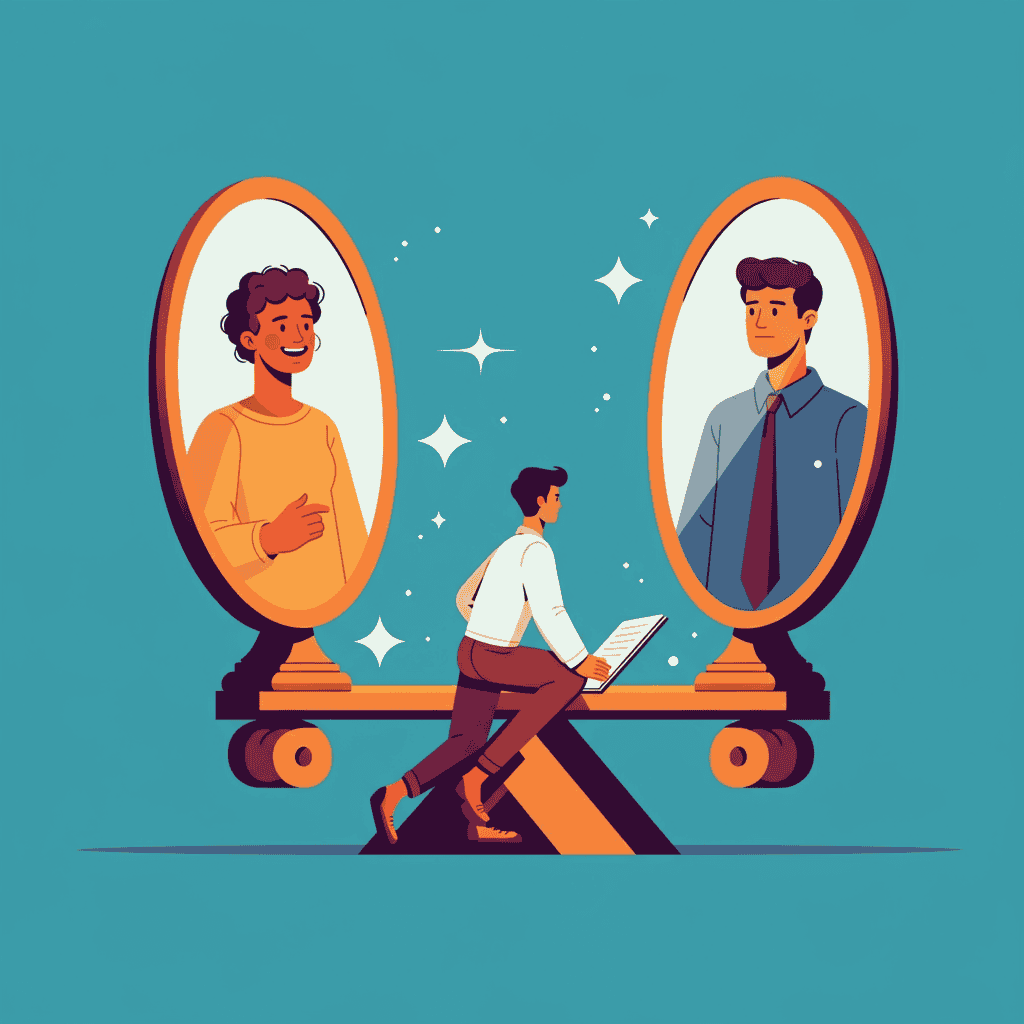
Healthy mirror usage is about intention. It involves using the mirror for its functional purpose—grooming, checking your outfit—and then moving on. Unhealthy usage is compulsive, critical, and emotionally draining. To find balance, it’s important to set limits. If you find yourself repeatedly checking your reflection, make a conscious effort to walk away. Practice self-compassion by reminding yourself that your worth is not determined by your appearance.
Scientific Studies and Psychological Insights
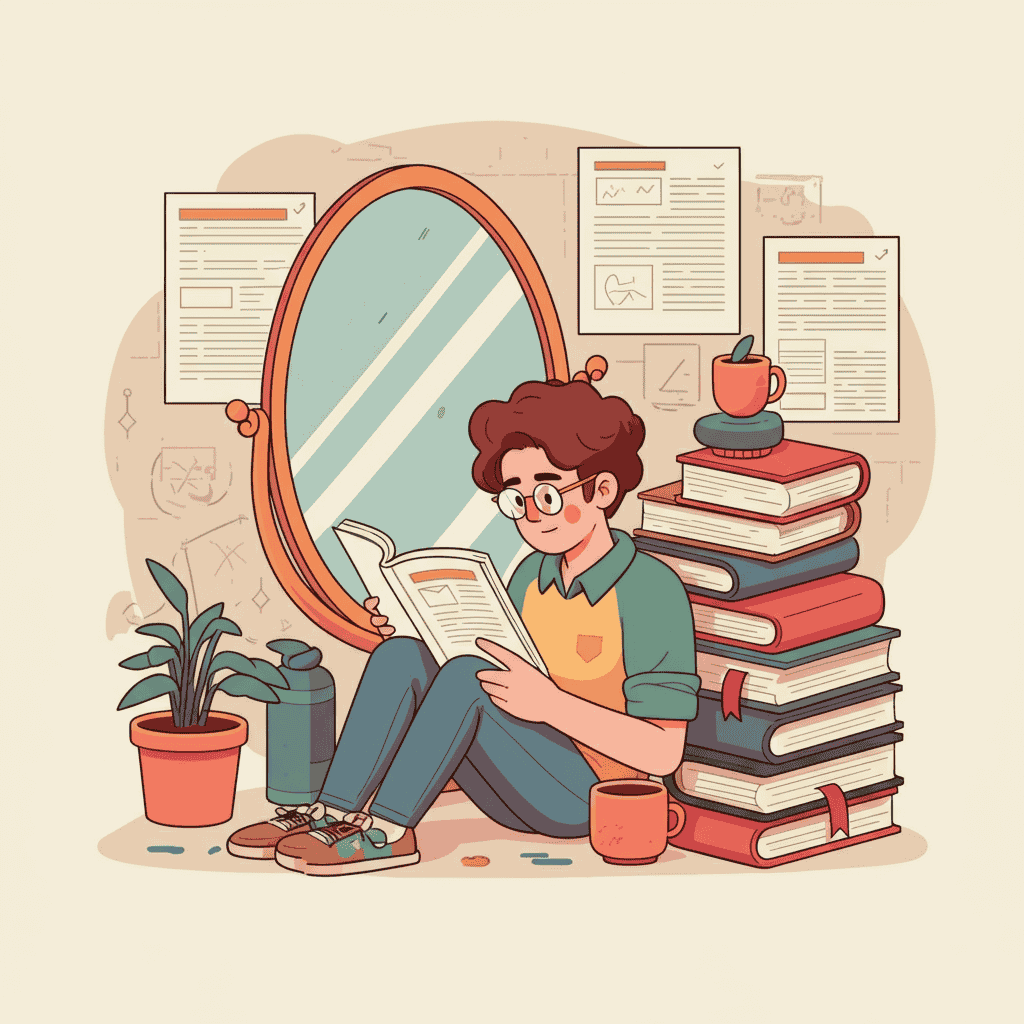
Research confirms the profound link between mirrors and our psyche. Numerous studies have explored how mirror exposure affects our emotions and self-perception.
One well-known line of research involves the “mirror-gazing task,” where participants stare at their own reflection for several minutes in a dimly lit room. Many report experiencing strange perceptual distortions, but more importantly, the exercise often brings suppressed emotions to the surface. It demonstrates how our reflection can act as a gateway to our inner world.
Other studies have shown that focusing on one’s own face in a mirror can increase self-focused attention, which can sometimes lead to more negative moods, especially for those with a tendency toward self-criticism. However, when combined with positive psychology interventions, such as affirmations, mirror work has been shown to improve self-esteem and reduce symptoms of depression. Insights from behavioral science suggest that what you do in front of the mirror matters more than how often you look at it.
Practical Tips for Using Mirrors to Boost Confidence
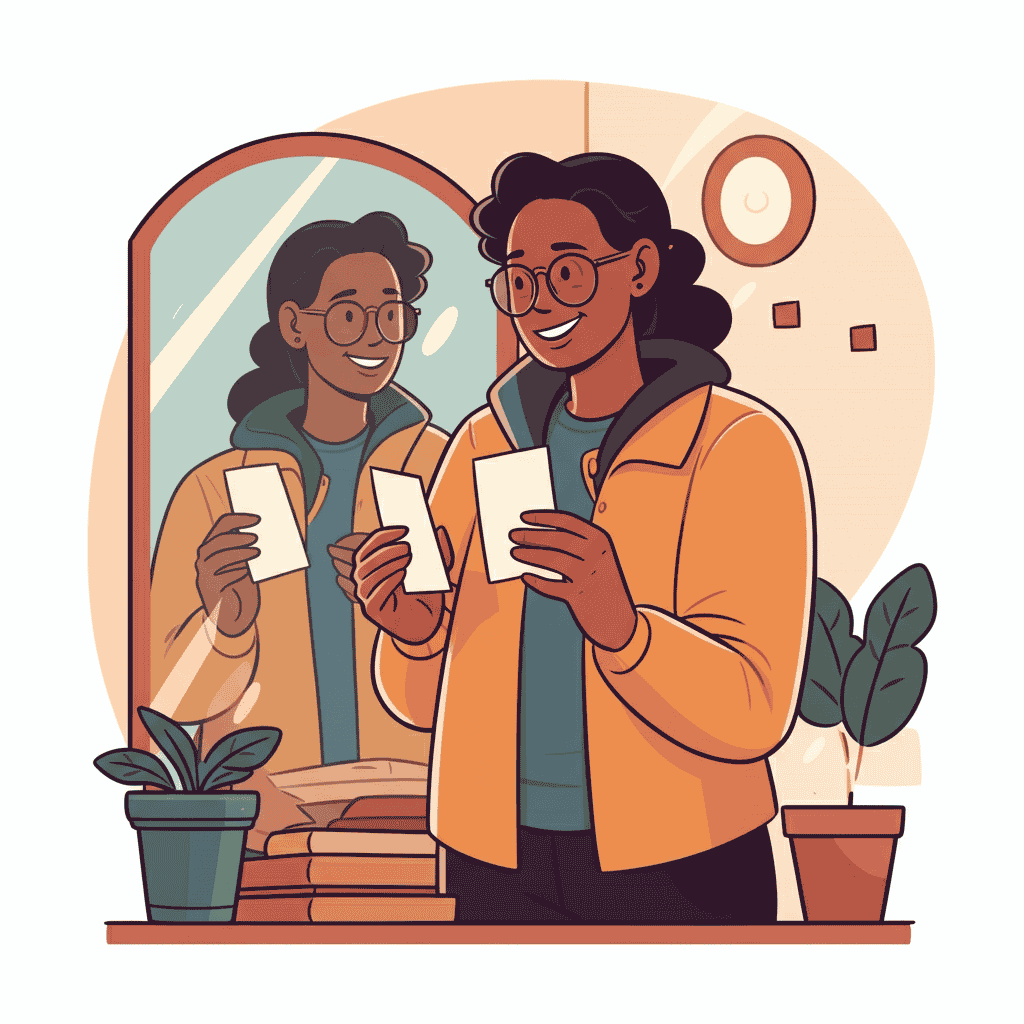
You can transform your relationship with your reflection from one of criticism to one of empowerment. Here are some practical tips to get started.
A. Mindful Mirror Practices
Instead of zoning in on flaws, practice mindful mirror gazing. Take a few deep breaths and look at your reflection with curiosity instead of judgment. Notice the things you like. It could be the color of your eyes, the shape of your smile, or the strength in your shoulders. Consciously shift your focus from what you perceive as negative to what you genuinely appreciate.
B. Affirmations and Visualization
Combine your mirror time with powerful psychological tools. Stand in front of the mirror each morning and state a few positive affirmations. Look yourself in the eye and say, “I am confident and capable.” Visualize yourself succeeding in your goals for the day. This practice primes your brain for success and reinforces a positive self-concept.
C. Body Language Exercises
Dedicate two minutes each day to practicing confident body language in the mirror. Stand tall, pull your shoulders back, and lift your chin. Smile at yourself. Hold a “power pose.” This physical practice sends signals to your brain that can genuinely increase feelings of power and confidence.
D. Environmental Tweaks
The environment where you interact with your reflection matters. Harsh, overhead lighting can create unflattering shadows that accentuate perceived imperfections. Opt for soft, natural lighting whenever possible. Use full-length mirrors to see your whole self, promoting a more holistic view rather than focusing on isolated parts. Keeping the space around your mirror clean and uncluttered can also contribute to a more positive and calming experience.
Conclusion: Reflecting Your True Worth
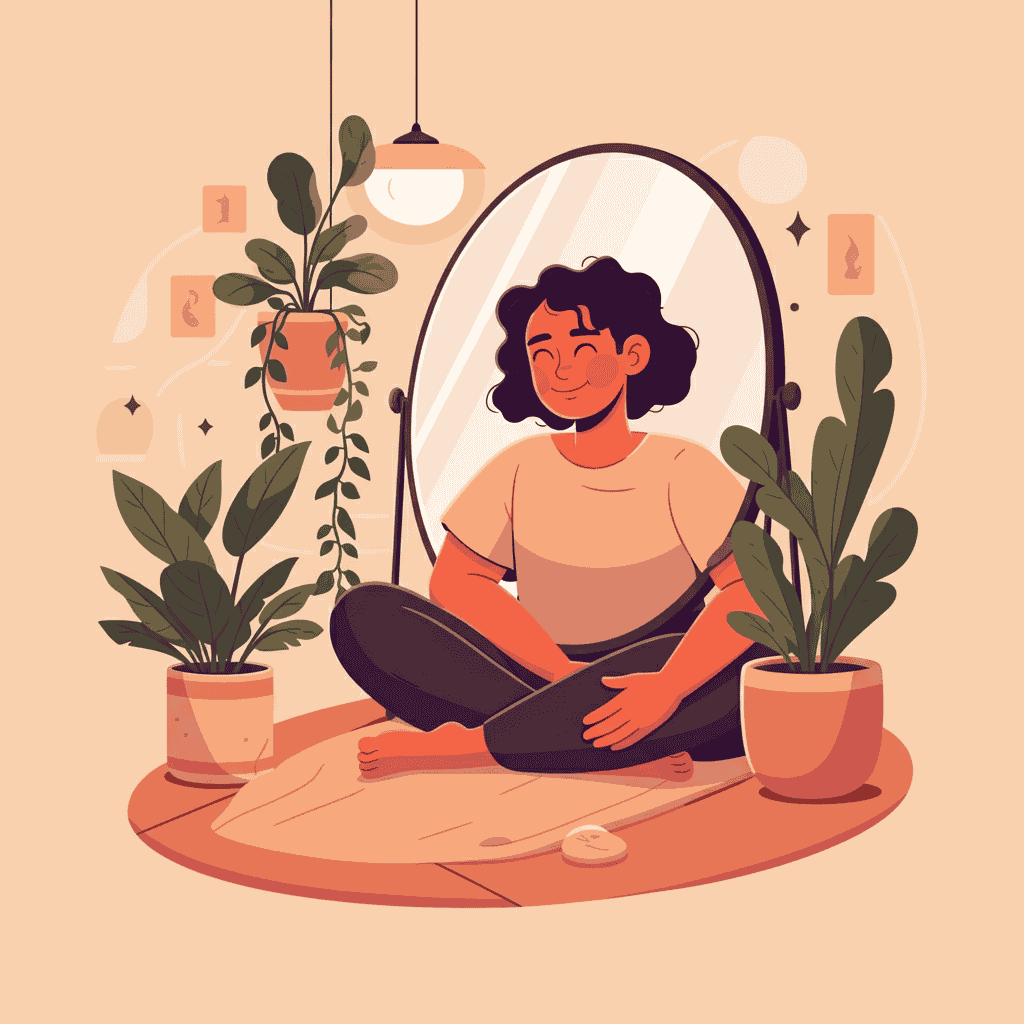
Mirrors are much more than simple household objects. They are a reflection of our internal state, capable of either magnifying our insecurities or affirming our strengths. The power of a mirror lies not in the image it shows, but in the meaning we assign to it. By becoming more aware of our thoughts and habits, we can transform this daily interaction into a ritual of self-support.
The journey to confidence is an inside job, but the tools we use along the way can make a significant difference. We encourage you to start experimenting with these positive mirror practices. Use your reflection not as a judge, but as a partner in building a more confident, compassionate, and empowered version of yourself. Your true worth isn’t found in a mirror, but you can use it to help you see it more clearly.
